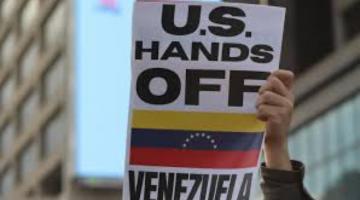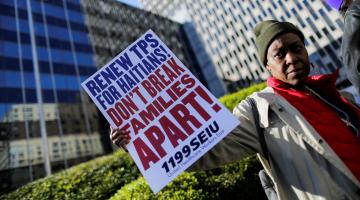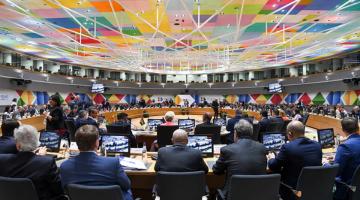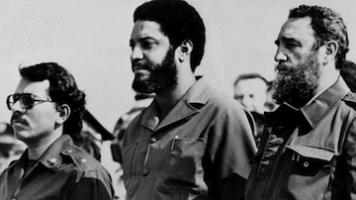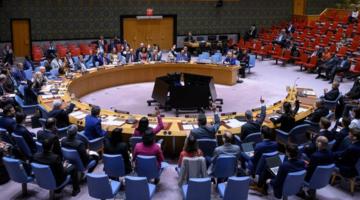Revolution requires more than violence—it demands collective awakening. Haiti’s crisis exposes the danger of hollow slogans masquerading as liberation.
Gangs and thugs cannot make mass revolutions.
A wind of despair blows relentlessly across the world. This wind of panic is the result of poverty and social inequalities. This has given rise to widespread wars that take various forms depending on the reality. Faced with the ravages of this phenomenon, Haiti is not spared (in fact, it is one of the biggest victims).
Haiti is plunged into insecurity in all its forms: poverty, arms trafficking and trade, organ and drugs trafficking and a lack of transportation, all of which have plunged the country into total financial insecurity. For many, Haiti has never experienced such a chaotic situation in history.
This critical situation is not without consequences for society. It forces the population to adopt a different understanding of life; many essential sectors in the society, including the universities, the media, organizations and political parties, etc, have suffered an unprecedented state of discouragement. These sectors have lost their true mission, which is to support the people by sharing a set of emancipatory values. The proper transmission of these customs and principles can help build hope in this total despair. Without this preventive education and movement, any group has a free field to approach the people and give them bad directions.
This disengagement prompts anyone, including those in the most reactionary group in the country, to chant a series of words that sound as if they carry a series of emancipatory values; but very often, the practices and activities of these people are not in line with these values. Let us take some examples: a criminal gang leader who claims he is "doing social work" or "fighting for the people," while others even say his group is conducting a Revolution. This creates great confusion because, in the context, the word “revolution” seems to have lost its meaning.
In this confusion, the first clarification that ELAPRE [Space for Revolutionary Struggle and Action] can provide: "Revolutions cannot happen without the voice of the people; they cannot happen by causing terror among the people." Furthermore, isn't the purpose of this phenomenon, calling reactionary movements a “revolution,” to pervert and discredit political discourse? Doesn't the perversion of the mother word of “REVOLUTION” to describe what these armed groups are doing in Haiti set us back in our struggle for change in the lives of the masses? Doesn't the appropriation and bad adaptation of this concept of “revolution” not scare many credible people away from getting involved in the struggle for social change? How can the concept of “revolution” be reclaimed in the service and interests of the masses?
Faced with the reality of the exploited masses around the world, and in Haiti in particular, there is no need to go through many steps to define what a revolution is. In the tradition of the struggle for the liberation of the exploited masses, the word “revolution” would mean breaking the current model of society to establish a new society that is based on equality and the well-being of all. It would mean that it is not the capitalist system or its agents that can bring about radical change; it must be a popular, militant and organizational initiative. Only then could we say that what is happening in Haiti is on the path of revolution.
If we dig deep into past history, we might be able to trace the line of a true revolution, one that leads to freedom and well-being for all. If the word “revolution” does not translate this reality in its use, it is far from being in the interest of the Haitian people. What is the point of trivializing such an important word like “revolution?”
The ruling class has long made it its mission to demoralize those who are struggling and to trivialize a series of political words that carry a set of values. It has practiced this in different moments in history: it pitted the enslaved against each other to weaken their struggle against slavery; furthermore, during the white American occupation, they labeled the Kako freedom fighters with all sorts of bad words to maintain the occupation forces in the country; under the Duvalier dictatorship, they were called communist militants "Kamoken" in order to eliminate them and prevent them from disrupting this harsh regime.
Today, things are even worse because the ruling elite are not only attacking revolutionary activists but the very idea of “revolution” itself, putting this word into the mouths of many reactionary and destabilizing groups in the country. All this is done in order to distract the people from the true objective of their struggle.
For the sake of history and truth, the country needs a revolution that brings together the projects of the exploited and dominated classes (whether they are workers, peasants, unemployed, or employees of the public or private administration). The objective is to establish a society without power, in the interest of the masses. The objective of this revolutionary movement does not aim to bring mourning and destabilization to the popular masses, but to make them truly live the project of life of freedom and well-being.
A revolution is a sudden change that overthrows a system of domination and exploitation to establish a new system. This change is brought about by the exploited.
“Revolution” is not a vague and meaningless concept; it takes its meaning in the exploration of social realities. Tell me what your society is based on, and I will tell you what revolution means. If society is based on slavery, on the basis of race and skin color, the revolution will be anti-slavery or anti-racist; if capitalism transforms human labor into a cheap commodity to facilitate it exploitation, and makes an accumulation of capital through generating colossal profits, the revolution will be anti-capitalist. For this, it is necessary a vanguard must accompany the people on the path of struggle, helping them to maintain the ideological line and develop their tactics. This requires in-depth reflection on revolutionary principles and their possible applications. This is the role of the organizations in front of the struggle for this transformation.
We cannot allow the crises around the world, and especially in Haiti, to destroy the left like this. Neither can we renounce our left identity, without us making the slightest effort to recover it, rebuild it, and strengthen our alternatives. We must not let the left become too small or too big for us, by entering into collusion with the team that is taking power against the masses. We must take responsibility and assume our identity as revolutionary left-wing activists.
In this sense , ELAPRE calls on all progressive organizations to form a united front to work together to thwart the plans of destruction carried out at the highest levels of Haiti. The response to the current chaotic situation must be concrete; it must not remain just words. Therefore, it is necessary to adopt good strategies and creative tactics to establish parties and mass organizations, and seek to take control of power in order to achieve the objectives of the people, in the construction of another society, and another state.
June 2025
ELAPRE Communication Commission contact- us: elaprepourchangement@gmail.com

